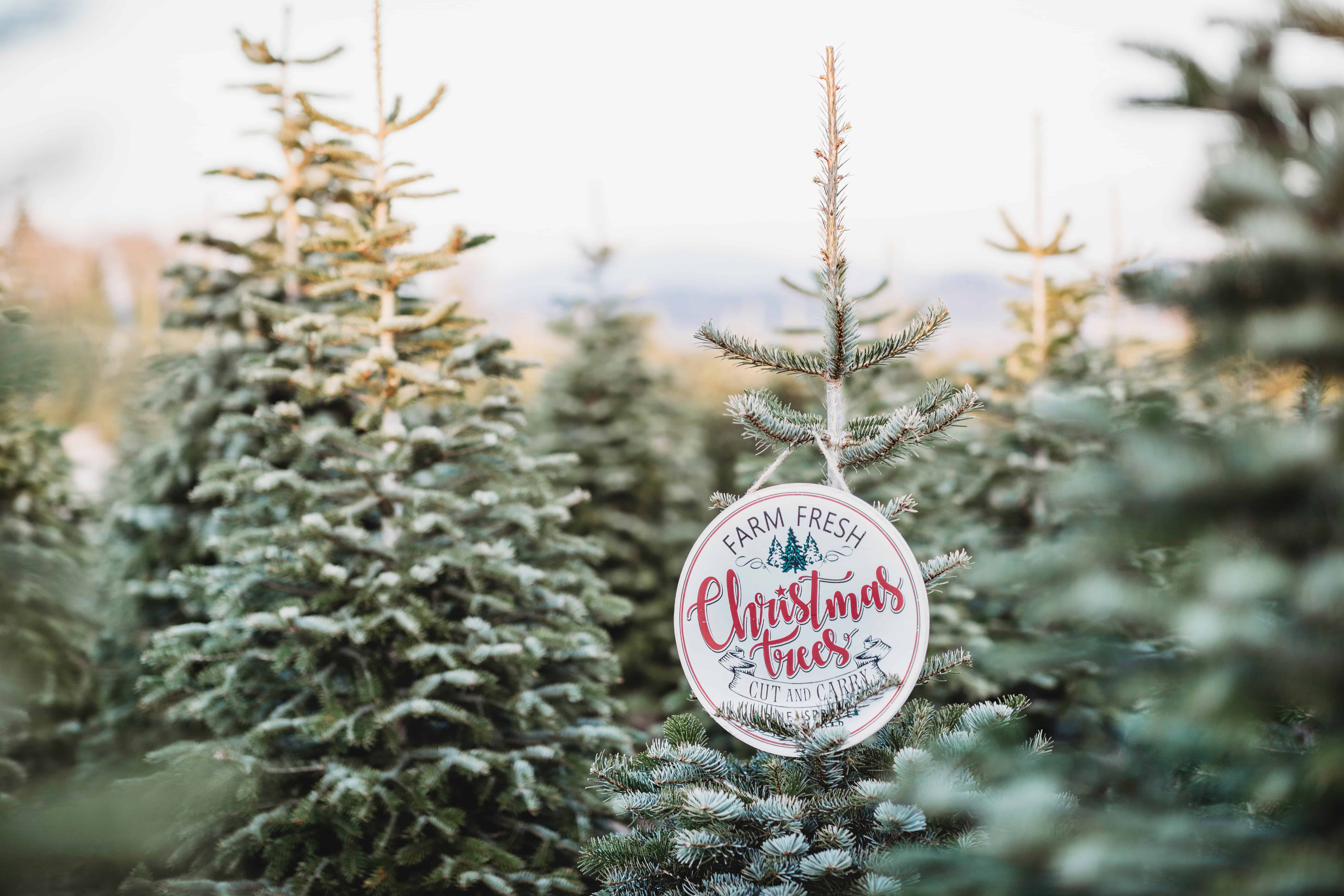Nothing says Christmas more than the scent of a freshly cut Christmas tree. Unfortunately, pesticides, such as herbicides, insecticides, and fungicides, are commonly sprayed on trees, making most Christmas Trees toxic to your family and pets.
(Download the Guide HERE)
This year, consider avoiding pesticide-laden trees, and support no-spray Christmas Tree Farms!
Many Christmas Tree Farms are monoculture farms growing only a couple types of trees. This increases the likelihood of pest problems, resulting in spraying to avoid significant crop loss. Top pests include poison oak around the trees, tree beetles, and mites. Pesticides are detrimental to wildlife, plants, waterways, soil, and our health. Not only does spraying pesticides contribute to harming the environment, pesticide residue often remains on Christmas Trees in your home, contaminating clothing, irritating skin, and potentially becoming airborne as the tree dries out.
Artificial trees are laden with chemicals as well, simply using different toxic compounds, such as BPA, PFAS, and heavy metals. Most are manufactured in China, Korea, Taiwan, or Hong Kong, and their production releases tons of poisonous toxins into the air every year. When disposed of (generally after only 3 to 5 years of use), they are not recyclable or biodegradable. They end up sitting in landfills for hundreds of years.
This year choose a Christmas Tree that has been cultivated naturally without pesticides, for a safe, healthy, sustainable option.
- Christmas Tree Farms create animal corridors, provide oxygen, sequester carbon, and bring trees with the delightful fragrance and feel of Christmas into the home. Real trees are a recyclable, renewable resource. They are also a perennial crop, making them more environmentally-friendly than annual crops. ·
- Certified Organic Christmas Tree Farms are hard to come by because of lack of consumer demand and higher costs associated with growing organic trees. An organic tree farm needs a diversity of tree species and other planning and maintenance to minimize pests naturally, as well as consistent labor to cut brush and poison oak instead of using herbicides. Organic certification is also costly and requires regular recertification.
Buying local and knowing your grower supports the local economy, and bolsters the growth of sustainable, eco-friendly tree farming.
What to ask before buying a Christmas Tree…
Explain you are looking for a naturally-grown tree with zero to minimal spraying.
- Who is the grower? If the answer is “Don’t know,” move on.
- How does the grower manage pests, fungus, and weeds on the farm? Do they spray the trees with pesticides and/or anything else? If the answer is they spray, find out what they spray and how often.
- Does the grower plant a variety of trees, or is it a monoculture farm? Monocultures increase the likelihood of pest problems, and therefore increase the probability of pesticides being used.
Tips to Buying a Christmas Tree…
If you can’t find a local Christmas Tree which hasn’t been sprayed, there are other options:
- Buy local, no-spray real trees. Avoid big box stores, cheap trees, and tree lots selling trees from out of state. The focus for these companies is cost, not sustainability.
- Avoid certain species with high pest problems such as Noble Firs, Frasier Firs, Concolor Firs, Shasta Firs and Colorado Blue Spruces, and opt for species with lower pest problems such as Nordmann Firs, Turkish Firs and Western White Pines. Douglas Firs, Grand Firs and Scots Firs have moderate pest issues. (https://catalog.extension.oregonstate.edu/sites/catalog/files/project/pdf/pnw6.pdf)
- Buy Potted Trees that are not grown with pesticides and synthetic fertilizers. Potted trees NEED a lot of care/inputs to ensure survival. Look for native trees that you can plant after the season is over.
- Rent-a-Tree from various companies across the U.S., that are not grown with pesticides and synthetic fertilizers.
Other Environmentally Friendly Tips for Your Christmas Tree…
- Transport in a sheet or on cardboard or tarp on top of your car, instead of using netting or plastic wrap over the tree, which creates unnecessary plastic trash.
- Cut ½” off the bottom of the tree when you get it home, and then put it directly in water, so it will absorb more water and stay fresher longer.
- Forgo flocking, as flocked trees are not compostable and go into the landfill.
- After the holidays, sweep up dropped needles and put your tree curbside so it can be composted. Go to www.earth911.com for Christmas Tree composting programs and dates in your area.
Be part of changing the culture of the Christmas Tree Farm industry by buying real trees from farms that do not spray pesticides, and let your voice be heard about what matters to you. Demand creates the market; with increased consumer insistence, we may begin to see more no-spray trees and certified organic Christmas Trees.

